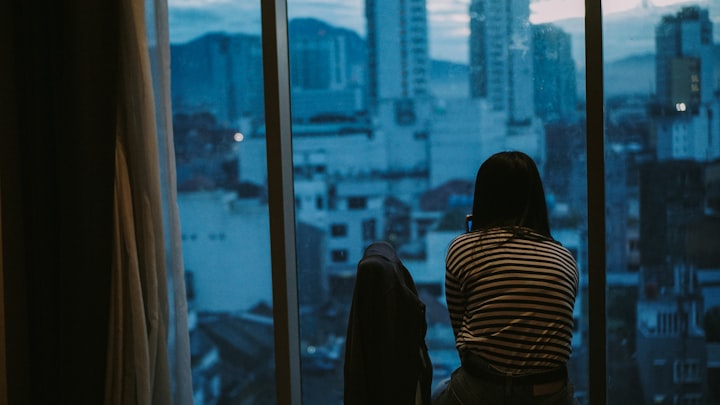Let Me Tell You About the Cocaine Queen of Florida
A story of my time being a juror on a cocaine case

The moment
The courtroom was eerier than I remembered it. Agitated. Energized. Colder too, like it was trying to unsettle us. The judge peered over her lenses into the sea of people.
“Juror 957, you’re a student, correct?”
“Yes, your honor.”
Her eyes found mine, solidifying the room’s enchantment on me. Chilling.
“Will serving on a jury interfere with your studies?”
“No, your honor. I’m in between semesters right now. You’ve found me at the perfect time.”
I remember thinking at that moment I should’ve lied.
Reflection
Until this point in my life, I had wondered what jury duty would be like. In my adolescence, my father had served on a jury that left him disturbed for some time after. He would tell me later in life that the case centered around the abuse of children, the thoughts of which irritated him as a father of three young kids at the time.
I was doubly and more intentionally curious about jury duty during my time in high school. I competed nationally on the debate team and locally on the law team with the intent of pursuing law school in college. Despite finding lukewarm competitive success, it had been fun to play a lawyer in the very courthouse I had asked to be a juror in — and in one of the same rooms I had competed in!
During the juror selection process, I felt compelled to answer earnestly, swearing that if selected, I’d seek to remove personal biases and act only in accordance with the law. From my experiences in high school, I knew I’d have no problem separating feelings from facts, taking into account the evidence, and holding it against the law when coming to a decision.
As a good candidate at a nearly perfect time, I was selected to be a juror. I’d report back to the courthouse the next day for the trial. Daunting, but thrilling all the same.
The case
Inside the courthouse lobby was a separate entrance for jurors. Upon walking up to the metal detector, I was stopped by a policeman, who asked if I was old enough to serve. I was 20 at the time and have always looked young for my age — it didn’t help that my fashion sense hadn’t developed much since high school. We exchanged a jab-hook apology and acceptance before I made my way deeper into the building.
The courthouse felt remarkably grim as ever.
Every time I had entered the courthouse before this, there was a rush of nerves and excitement in hoping for a good performance from me and my team. This time there were real stakes. This was the day I’d uphold my part in determining the fate of an individual awaiting trial somewhere upstairs.
If the air held still enough, I thought I might be able to remember that rush. Instead, it felt more like a bad omen.
Enter, stage left. The cocaine queen.
Everything in that courtroom creaked, even the blank notepads waiting for us on the chairs of the jury box were aged, held for just long enough in the guts of the place to begin spoiling.
I tested the pen. Fresh. Thank God.
The other jurors had just managed to befriend their materials when she walked in. She held her chin like royalty, donning a pink T-shirt that read “Queen” in sparkled black sequins to match.
We’d soon learn, however, that instead of riches, this woman had attracted the opposite.
In another life, she could’ve been young, if not for the equal excesses of sunlight and addiction that laid plain across her face. Battle-torn. Stoic, even. I’m sure she was terrified.
Her counsel barely looked old enough to practice law. Disheveled, but awake. For free lawyers, it would seem that making it on time was the only standard of quality.
The prosecuting attorney was an older woman with a heavily tabbed binder and glasses like knives. There was a distinct air of confidence about her that the defense might’ve once dreamt about. A true command.
However, any cinematic appeal this sequence held was immediately overshadowed by the underperformance of the defense’s argument.
The prosecuting attorney held that the defendant sold cocaine to cops. Her rhetoric was tactful but precise. Every word had its place, every word meant to cast away any doubt the jurors might find in the defense.
But there was no defense.
The only semblance of an argument the defendant’s counsel offered was that the defendant was a “small fish caught in a big net,” which inherently admits defeat in just enough words to form a coherent thought. I remember thinking that no matter what the defendant might have done, she definitely deserved more competent lawyers.
The witnesses
The story was simple. She sold cocaine to cops. The cops arrested her. Now she’s here in the courtroom, just paces from the jury box.
But for the prosecution to prove their case, there’s a mess of legal bureaucratic hoops they have to jump through. So, one by one, we the jury were introduced to every witness involved:
- A bicycle cop (which I thought to be a hilarious misallocation of resources) scouted the defendant’s residence to make sure she was home.
- The arresting officer, who had gone undercover with his partner — fake beards and all, to drive to the defendant’s home to ask to buy cocaine from her.
- A scientist who had taken the sample had determined with nearly 100% accuracy that the substance the defendant had sold the cops was cocaine.
The prosecution’s direct examination, an open line of questioning meant to tell the story of the case, was flawlessly executed. The evidence and arguments were clear. Every witness was credible, with no inkling of doubt in their collective story.
The defense’s opening line was a beaten record by the last witness. They couldn’t directly admit their defendant was guilty — doing so would’ve opened up options for appeal, but they also couldn’t refute the evidence presented, caught in a limbo of small fish and big nets.
What a purgatory.
I couldn’t help but feel bad for the defendant. It was like watching someone kick a dog. Guilty or not, she deserved a proper argument for her side. It’s a shame that the public defender system in the United States (that, if you are unable to afford legal counsel, they will be appointed to you) is so poor. Even in high school, I remember being angry at how reckless the system is.
While the trial fell short of providing a compelling back and forth, the utter domination of the prosecution was, at times, laughable.
The evidence
The video of the poorly disguised cops was damning.
The defendant approaches the truck, chewing gum, leaning into the window in an effort to keep her voice contained within its interior.
“Are you guys cops?”
“No, we’re not cops.”
“OK, but ya know, if you were cops, you’d have to tell me.”
In the moment, it wasn’t funny — physically being there to witness the defendant’s own uncoupling as a guilty verdict looks more and more inevitable is very serious. It felt like I was witnessing a crime in itself. But every time I’ve told this story, I can’t help but laugh a little at how ridiculous this exchange was. The idea that undercover cops are in any way obligated to let you know they’re undercover defeats the purpose.
Eventually, the cops convinced the defendant to sell them cocaine. The jurors were made well aware of this when the same plastic bag from the video was handed to us as evidence. In movies and TV, when evidence is being shown, the judge and the jury have the opportunity to look it over. The same is true in real life.
It looked like a tooth.
The substance couldn’t have been bigger than my fingernail, and no thicker than an incisor. Apparently, this was cocaine.
Nice. I (very briefly) thought to myself before (very quickly) passing the evidence down to the next juror. I didn’t want the judge or any of the several police officers in the room to think I had an affinity for the substance beyond the mere awe of being about six inches from it.
The deliberation process
We were led into a back room for deliberation, which took no less than four seconds.
We were given copies of the evidence compiled, including the marked bills that the cops used as another layer of offense in their case. A few of my fellow jurors were curious about the evidence, which they treated more like playthings and less like tools for the legal evisceration of that woman in the video.
After agreeing the defendant was guilty, the only thing left to do was to determine who the foreperson was going to be to deliver the verdict. There was a heaviness that weighed over all of us, I wasn’t the only one who had just witnessed a slaughter.
I did leave out one detail at the beginning of the story.
At the very beginning of the juror selection process, one of the public defenders mentioned me and only me by name before the judge intervened and sternly said that revealing the names of jurors was prohibited in front of the defendant.
I understood this to be one of those cosmic jokes I’m victim to intermittently.
If that dumbass hadn’t called me out by name, I would’ve offered to be the jury’s foreman to deliver the verdict. I think that doing so might have lifted the psychic weight I felt over being in partial control of the fate of another human being (no matter how damning the evidence). But at that moment I abstained, and another juror offered to do it.
For some reason, throughout my life, I’ve always found it irresistible to look away in moments where it’s probably best to. There’s a certain humanity in observing moments that aren’t meant to be witnessed. When heads bow at a Sunday service. Or at a funeral. I don’t look out of disrespect, only that my curiosity often gets the best of me.
So when the foreman read the verdict, and while my fellow jurors averted their eyes, I felt mine drawn to the defendant as she was found guilty.
At that moment, the room finally settled.
The aftermath
I remember the day being oddly normal after that. It felt wrong to have witnessed the complete undoing of the defendant on the stand. While the woman was guilty of her crime, I couldn’t help but wonder if her intentions were noble. Maybe she was just trying to put food on her table. Maybe she was trying to support someone else that couldn’t make money.
Or maybe it’s a fault of mine that I try to give people the benefit of the doubt.
I remember Googling what happens to a person’s house when incarcerated later that day.
In my own reflections, I don’t think the defendant was doing anything inherently wrong or bad. At worst, self-destructive. Ultimately she was just trying to make money to continue surviving, same as a lot of other people.
Lessons
- Seeing the actual process mirror the ones I had practiced during my high school career was immensely rewarding. Being an actual juror was an experience I’ll never forget.
- If I could fix anything, it would be to increase the quality of public defenders. I understand they’re free and a last resort/legal right, but at least give defendants a fighting chance. It just felt horrible to see everything go wrong for the defendant.
- I would not do it again, nor would I recommend trying to get on a jury unless you’re as curious about the process as I was. All you have to do is give the lawyers any reason to not choose you. Not wanting to be there happens to be a great reason. During the selection process, a few unhappy campers complained in front of everyone. They were not selected.
- I also lucked out and wasn’t selected for a murder case. I think about that a lot.
- By this time, I had already dismissed the idea in pursuit of a creative life, but seeing how broken parts of the US legal system solidified my disenchantment with the idea of becoming a lawyer.
Update and disclaimer: since originally posting this on Medium, I've released a song called cocaine, baby! that you can listen to here - https://open.spotify.com/track/4zlLyXMp1cUOgaLXO4QbzA?si=228ee0e2bdf843c7
Link to original article - https://medium.com/tiny-life-moments/let-me-tell-you-about-the-cocaine-queen-of-florida-67cc01614a33
About the Creator
Justin Boyette
4x Top Writer on Medium. Telling interesting stories from life's ordinary moments.
Writing about learning, organization, and erudition.






Comments
There are no comments for this story
Be the first to respond and start the conversation.